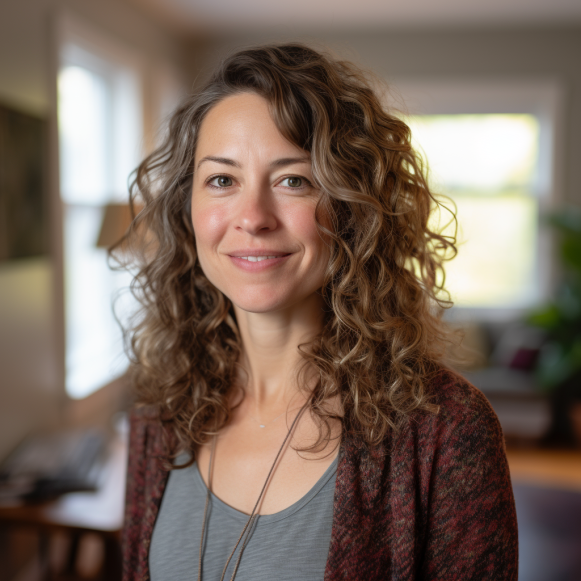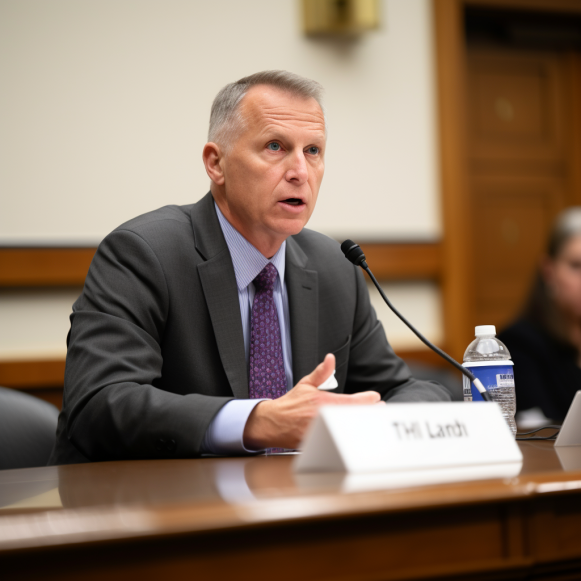Long COVID study will dig into treatment options. ‘I think a lot of people are really desperate’

CHICAGO (AP) — Debbie Tumbarello’s wedding seemed like the pinnacle of romance at first, a Valentine’s Day whirlwind straight out of “Sleepless in Seattle,” she said.
Tumbarello, who lives in Inverness, Illinois, married her husband on February 14 in Las Vegas. She left Vegas remembering a Beatles tribute show and a rooftop ceremony. She did, however, leave with COVID-19 and has not recovered fully.
“The cold symptoms subsided, but as the weeks passed, I just started sleeping,” Tumbarello explained. “On weekends, I’d sleep 14 to 16 hours a day… My husband was terrified. He’s like, “This isn’t you.”
Tumbarello was diagnosed with long COVID after an infectious disease specialist at NorthShore University Health System heard about her brain fog, extreme fatigue, and joint pain.
Tumbarello has now been prequalified for a national study aimed at learning more about long COVID and developing treatment and prevention programs. The National Institutes of Health-sponsored study will evaluate up to 11 treatment combinations for long COVID. The organizers are not looking for a COVID cure. They want to know why long COVID occurs in order to prevent future cases and help those who are already suffering from debilitating symptoms.
“NIH is committed to a highly coordinated and scientifically rigorous approach to finding treatments that will provide relief for the millions of people living with long COVID,” said Lawrence Tabak, acting NIH director.
NorthShore-Edward-Elmhurst Health has been designated as one of the study’s four primary sites, and doctors at the hospital are actively recruiting participants.
The primary sites were chosen by NIH researchers based on their proximity to communities heavily affected by long COVID. Access to relevant medical equipment, the expertise of nearby doctors, and a strong track record of diversity in local clinical trials were all important factors.
The first phase of the study, which included 24,000 patients, involved watching people who had long COVID to see when and why symptoms appeared. Phase two, which is currently underway at NorthShore, will include three clinical trials addressing cognitive dysfunction, sleep issues, and viral particles.
Up to 40,000 people could take part in the study over the course of four years. The initiative will receive $1.15 billion in congressional funding over four years, with $811 million already allocated.
In the Recover-Vital clinical trial, some patients will receive either extended doses of Paxlovid or a placebo to eliminate the presence of SARS-CoV-2 viral matter in the body. Paxlovid is already used to treat some short-term COVID cases, but this trial will see if it can also keep the virus from causing long-term organ and immune system damage.
The trials’ Recover-Neuro section will address brain fog, memory problems, and other neurological symptoms associated with long COVID use. Some participants will use online cognitive and executive functioning programs. Others will have transcranial stimulation, which involves sending small electric currents through the brain to improve blood flow.
Recover-Sleep, the third section of the trials, will compare two different medications that could be used to treat excessive daytime sleepiness. Other tried-and-true interventions for difficulty falling or staying asleep will be tested in groups.
Other locations will host a fourth section, Recover-Autonomic. The trial will put various medication combinations to the test in order to alleviate symptoms related to the autonomic nervous system, which controls automatic processes in the body.
The first patient in the Recover-Vital clinical trial, Evanston resident Jobi Cates, began treatment last week.
Cates, 52, was diagnosed with COVID for the first time in March 2023. What started out as a bad cold turned into a “heavy feeling” that reminded Cates of pneumonia. Within a month, her heart was racing constantly, indicating that she had long COVID.
Cates took a leave of absence from her position as executive director of a criminal justice nonprofit. However, “radical rest” only worked so well against what was eventually diagnosed as long COVID. Cates was also diagnosed with POTS, an autonomic nervous system disease that causes problems with the heart, hormones, and blood flow.
Cates didn’t leave her apartment during the first few months of her long COVID. She couldn’t drive, cook, sit at her computer, or talk on the phone for more than 20 minutes. While her heart medication has helped, her walks are limited to a few blocks and her social interaction is severely limited.
“My life as I knew it before is over,” Cates declared. “Hopefully, I’ll be able to get some of it back someday.”
According to Dr. Nirav Shah, the study’s primary investigator at the Edward-Elmhurst sites, long COVID can be difficult to identify because symptoms vary widely. Many patients are “essentially disabled” when they are diagnosed, and treatment options are limited.
Shah, an infectious disease specialist at NorthShore, believes the Recover trials at Edward-Elmhurst will provide much-needed relief to patients in the Chicago area.
“Our system is really excited,” Shah says, “especially the clinicians who have been taking care of long COVID patients.”
According to Shah, more recent COVID strains appear to result in long COVID less frequently. Long COVID is more common in Hispanic adults, as well as bisexual and transgender adults.
Before contracting COVID this year, both Cates and Tumbarello were fully vaccinated.
Edward-Elmhurst Health is made up of eight hospitals spread across six counties. Shah leads a team of nine NorthShore health care professionals who are organizing the study. Other NorthShore physicians are actively seeking new patients.
Being directly recruited “made a huge difference,” Cates said.
“Trying to get into (a long COVID clinic or study) is a task that I don’t necessarily have the energy for at this point,” Cates explained. “I don’t even have the energy to do 1/100th of what I used to do in a day.”
According to Shah, the team initially contacted 2,000 potential long COVID patients in the Chicago area. There were between 50 and 75 responses.
“I think a lot of people are really desperate for treatment options in a space where there hasn’t been many,” Shah explained.
Preparing for the study entailed mostly speaking with the study team about her symptoms. Tumbarello explained. Brain fog has been a particular problem for her.
“Some days, I just have trouble putting words together,” Tumbarello explained. “There is no way to describe COVID if you haven’t had it.”
Tumbarello, an executive assistant, has been on medical leave since June. Her brain fog makes it difficult for her to get out of bed in the morning, let alone manage multimillion-dollar contracts, she claims.
Cates, too, suffers from incapacitating brain fog. Her worst days, she says, remind her of the early stages of Alzheimer’s disease in one of her parents.
“When I’m tired, and sometimes even when I’m not,” Cates explained, “my brain gets very foggy and cloudy, and I can’t always think or talk the way I used to.”
Residents who believe they may have long COVID and want to participate in the study should contact Edward-Elmhurst Health after consulting with their doctor, according to Shah.
Cates and Tumbarello both encourage others to apply and to keep spreading the word about the trial.
“As much as I’ve lost from this, I’m still hopeful,” Cates said. “There are good people all over Chicago who, once they learn about long COVID, do whatever they can to help.”





